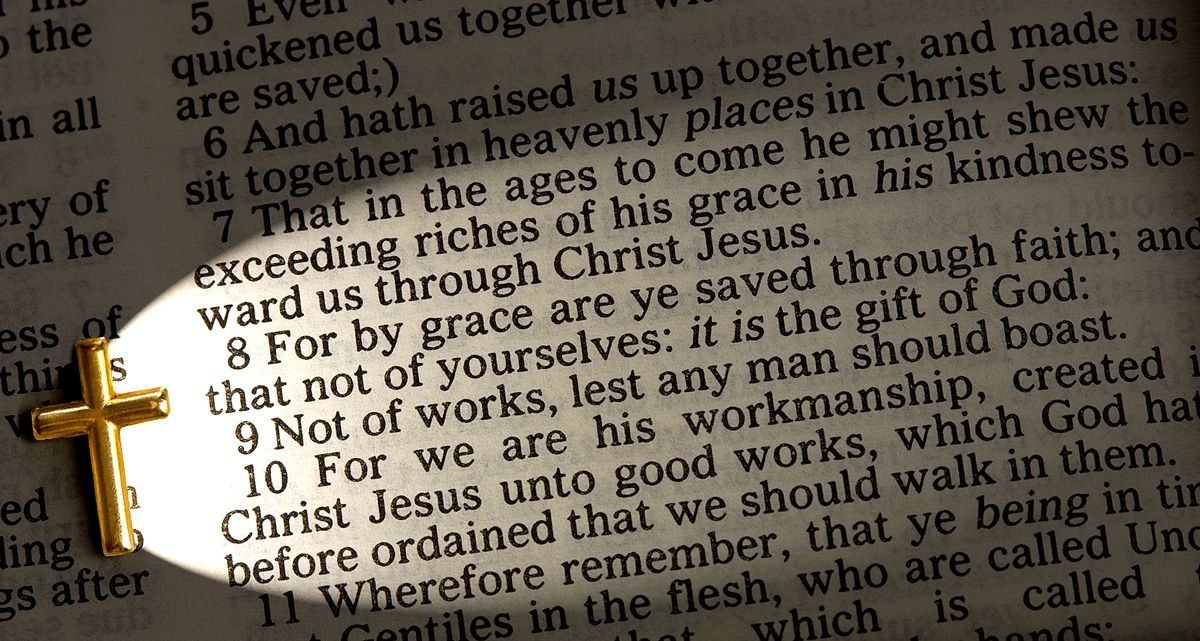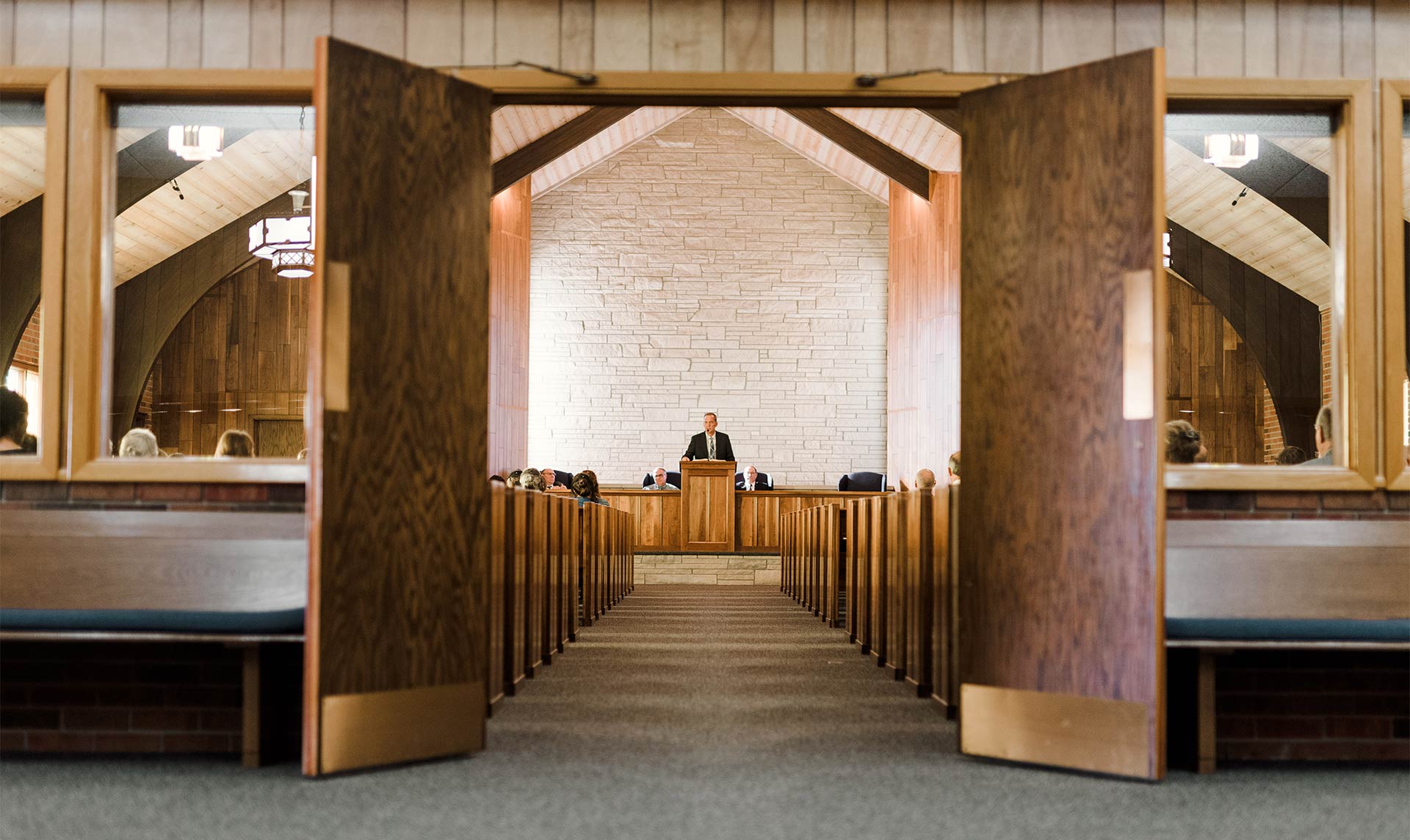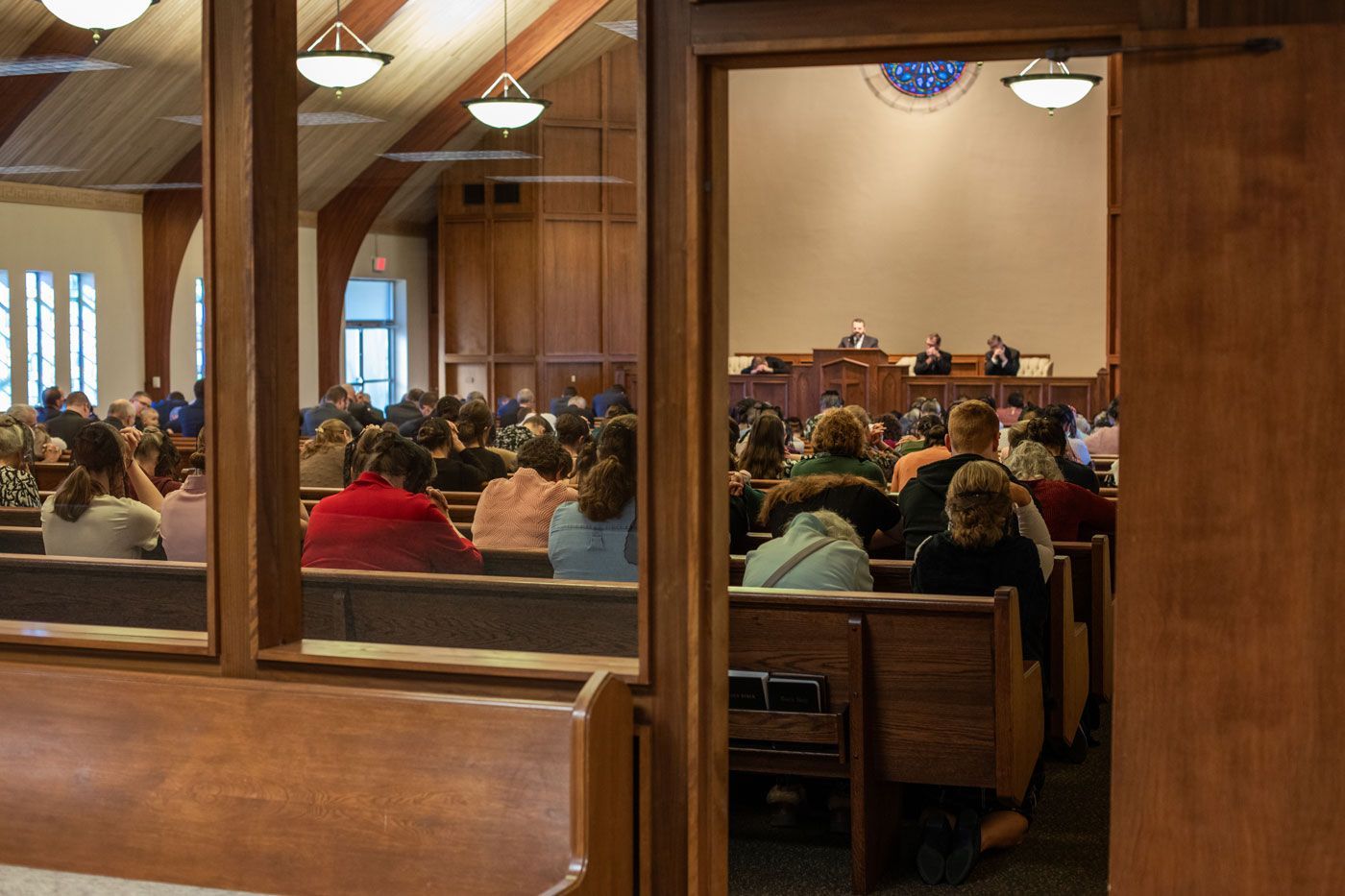Trusting God with Government
“Peace I leave with you, my peace I give unto you: not as the world giveth, give I unto you. Let not your heart be troubled, neither let it be afraid.”
John 14:27"

The world we live in presents many opportunities to demonstrate the abiding peace and deep love made possible by faith in the resurrection of Jesus. Followers of Christ are the grateful recipients of transformed minds, purified hearts, and the beautiful promise of the Holy Spirit. These powerful and abiding characteristics provide comfort and wisdom amidst the confusion, political unrest, and deception so evident in the world around us. We live in a world that trusts in political systems, leaders, and government powers to preserve one’s desired way of life, and responds with fear, hatred, and violent discourse when things don’t go as desired. Thankfully, as citizens of Christ’s kingdom, we can place our hope in God and serve as ambassadors for Christ. Whether divisive elections, violence, or hardship, remembering God’s faithfulness through the ages can put our hearts at ease in tumultuous times. Following his instruction will keep our hearts from anxiety and fear and keep our feet from falling.
Observing evil committed by those in positions of power may raise our anxiety level. However, God uses both good and bad leaders and events to accomplish his will and purposes. God chose the Babylonian king Nebuchadnezzar to be his servant to bring judgment upon Israel and the surrounding countries. Not many years later, he moved Cyrus to issue a decree permitting the Jews to return to their homeland. Of the Egyptian pharaoh of the exodus, God declared: “For this cause have I raised thee up, for to show in thee my power; that my name may be declared throughout all the earth.”[1] It requires faith and confidence in God to remain calm in our hearts in the face of events that appear to be harmful to the nation in which we are temporary residents – pilgrims and strangers (expatriates) in a world that is not our home.
When the powers that be are corrupt, it offers a significant opportunity to demonstrate our faith in God and obedience to his word. He clearly teaches us to submit to the government to the extent that it does not compromise our faith. “Let every soul be subject to the higher powers (governing authorities). For there is no power but of God: the powers that be are ordained of God.”[2] Human governments exist by the will of God. Imperfect as they are, they provide some degree of order and are part of God’s plan for governing the world until Christ returns. Only when the authorities attempted to prevent the apostles from preaching and witnessing for Christ did Peter declare, “We ought to obey God rather than men.”[3] Therefore, we should respect the office of elected officials even if we don’t agree with some of their views, policies, or conduct. The Word says to, “Honor all men,” but specifically follows up with, “Honor the king.”[4] The king at this time was the infamous Roman emperor Nero, under whose reign both Peter and Paul were martyred.
Prayer and godliness in civic participation
As pilgrims and strangers in this world, we need not be ignorant of circumstances around us. We may even be able to influence the world around us for good. If we choose to engage, we should align our views with godly principles and do our best to understand truth objectively. Most political commentary is unashamedly partisan and self-serving, and we may tend to give more credence to what appears to align with our views. With a humble and diligent pursuit of understanding, we can align our perspective with biblical principles and commandments. Looking to the Bible, sharing thoughts and concerns with other believers, and praying for the Holy Spirit to help us discern between truth and error, will keep us from being deceived.
Rather than engaging presumptuously in political conflicts, we are called to be like Jesus, gentle and meek. “If it be possible, as much as lies in you, live peaceably with all men.”[5] This emphasizes the effort we should make toward peace, but also implies that there may be instances where it is not possible. We are responsible for our reaction to a situation. As peacemakers, followers of Jesus should never provoke hostilities or sow strife. Passions may run high following a contested election or the implementation of laws that go against scripture. “A soft (gentle, mild, conciliatory) answer turns away wrath, but grievous (harsh, spiteful, retaliatory) words stir up anger.”[6]
As citizens of God’s Kingdom, we pray, “For kings, and for all that are in authority, that we may lead a quiet and peaceable life.”[7] This means national, state, and local positions all around the globe. It may be a challenge to keep praying for leaders if they fail to live up to their promises or if our peace is disturbed by civil unrest. Like Timothy, we are taught to not be entangled in the civic affairs of this life and may have to “endure hardness.”[8] We may not understand God’s purpose on this side of eternity. He reminds us that, “As the heavens are higher than the earth, so are my ways higher than your ways, and my thoughts than your thoughts.”[9] His ways are “past finding out!”[10]
Appropriate gratitude for country
We are taught to respect the people and the land where we live, loving our neighbors as ourselves.[11] Such patriotism, the love for country and fellow citizens, can sometimes subtly shift our thinking toward viewing others as inferior or unimportant. We may find ourselves being deceptively drawn towards nationalism, which contains elements of appreciation of country, but further asserts a narrow focus of what a nation or culture should stand for and attempts to elevate that nation and its values as superior to all others. Tragically, nationalist governments have often become authoritarian and repressive, marginalizing and persecuting groups that did not conform to cultural standards. While some ideas being promoted by nationalists may seem appealing and may even share some aspects of Christian virtue, it seems clear from the ministry of Jesus and the apostles that Christians are commissioned to proclaim Christ’s message to the world through the Spirit working in his church, not by governmental decree.
Let’s trust God and his promises rather than being fearful or angry about the future. “For God has not given us the spirit of fear; but of power, and of love, and of a sound mind.”[12] Paul writes his final words of encouragement to Timothy from prison, sensing that his death is imminent, forsaken by many of his coworkers, and burdened by the growing threat of division and deception in the church. Despite these desperate circumstances, Paul’s vision is fixed on Jesus and his return. “The Lord shall deliver me from every evil work, and will preserve me unto his heavenly kingdom: to whom be glory for ever and ever. Amen.”[13] Let’s endeavor to keep that vision and confidence whenever we face uncertain times.
[1] Exodus 9:16
[2] Romans 13:1
[3] Acts 5:29
[4] 1 Peter 2:17
[5] Romans 12:18
[6] Proverbs 15:1
[7] 1 Timothy 2:2
[8] 2 Timothy 2:3
[9] Isaiah 55:9
[10] Romans 11:33
[11] Jeremiah 29:5-7
[12] 2 Timothy 1:7
[13] 2 Timothy 4:18









